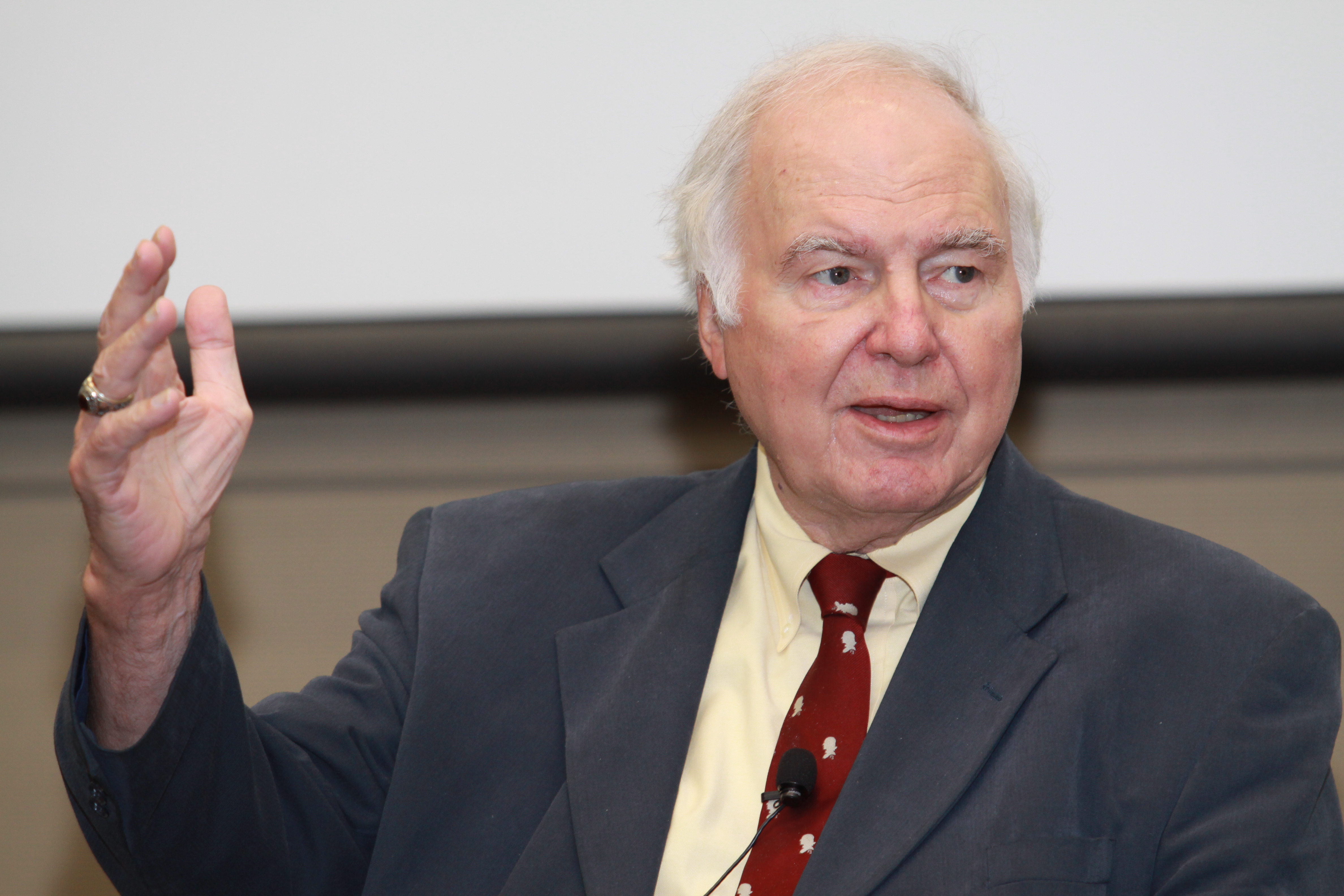Novak has applied his philosophical and theological skills to virtually every consequential aspect of the human condition. He has not followed a preset itinerary but has deliberately charted previously unexplored territories and terrain. That choice—to break out of conventional patterns of thought and become one’s own intellectual GPS—has not always made for an easy life.
Despite the depth and breadth of Novak’s accomplishments, Weigel is able to illustrate the impact of The Spirit of Democratic Capitalism:
The impact of Novak’s writing on Catholicism and economic life wasn’t just felt in Rome. A samizdat translation of The Spirit of Democratic Capitalism circulated in poorly printed and tattered editions among the leaders of Solidarity in Soviet-controlled Poland, helping to shape the post-Communist future of that country. The Polish government recently acknowledged Novak’s contribution to a free Poland by awarding him the Commander’s Cross with Star of the Order of Merit, one of the nation’s highest honors. The Spirit of Democratic Capitalism had a similar influence across the Tatra Mountains, in what was then Czechoslovakia.
Novak’s thinking on economics and his critique of Marxist-influenced “liberation theologies” also helped turn the tide against an influential movement that threatened to reduce the Church in Latin America to a political agent advancing a totalitarian agenda. At the same time, his creative extension of Catholic social doctrine helped Latin American scholars, clergy, and political leaders think beyond the authoritarianism and mercantilism that had often characterized Catholic public cultures south of the Rio Grande.
Finally, it’s important to note the influence of Novak’s economic thought on an entire generation of younger thinkers, on American officeholders of all religious persuasions and none, on religious leaders of various denominations, and on business leaders and entrepreneurs throughout the world. By demonstrating how empirical rigor about the realities of economic life could be married to core principles of Catholic social doctrine and to a profoundly biblical anthropology, Novak has helped open up once-unimaginable conversations.
Weigel’s entire piece deserves reading, but the final paragraph captures not only the warm relationship between these two important Catholic thinkers, but also the passion and personality of Michael Novak:
At the end of Chaim Potok’s beautiful novel The Chosen, Reb Saunders, the Hasidic sage who has acceded to his elder son Danny’s desire to become a healer in the world rather than a congregational rabbi, makes an act of faith in his son’s future—his son will be a tzaddik, a wise and compassionate man, a moral beacon, for the world. “And the world needs a tzaddik,” the aged refugee from Russian pogroms testifies. Given the depth and breadth of his ongoing conversation with Jewish thinkers, it is no stretch of the boundaries of interreligious propriety to suggest that the achievement of Michael Novak, this singularly American Catholic achievement, has been the achievement of a tzaddik for the world.
